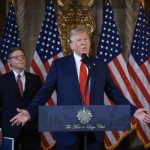Stay informed with free updates
Simply sign up to the War in Ukraine myFT Digest — delivered directly to your inbox.
The US and the UK have launched a crackdown on trades in Russian metals, in a move designed to limit Moscow’s export revenue and restrict its ability to fund the war in Ukraine.
The action, announced by the two countries on Friday, marks an aggressive effort by the allies to damage Russia’s income — but could disrupt trading at exchanges including the London Metal Exchange and Chicago Mercantile Exchange.
“Our new prohibitions on key metals, in co-ordination with our partners in the United Kingdom, will continue to target the revenue Russia can earn to continue its brutal war against Ukraine,” said Janet Yellen, the US Treasury secretary.
She added that the US and UK were “taking this action in a targeted and responsible manner” in order to protect “our partners and allies from unwanted spillover effects”.
The action will affect trade in aluminium, nickel and copper. Officials said Russia had made $40bn from sales of the metals over the past two years, while it has been fighting in Ukraine.
The US and its allies had been wary of sanctioning Russia’s metals sector at the start of the full-blown invasion of Ukraine in 2022, fearing disruption to global commodity markets.
The move against Russian metals follows the G7’s campaign to curb Moscow’s revenues from crude and petroleum exports, including through a price cap on seaborne oil trades involving western shipping servicers.
It includes a ban on imports of Russian-origin metals into the US. It also prohibits the provision of warranting services for the metals and bans services to acquire the metals as part of the physical settlement of a derivative contract.
The LME and CME will not be able to trade any new Russian aluminium, copper or nickel.
“We are confident that Russian origin metals will not find their way on to these exchange,” a US Treasury official said. Trades carried out under bilateral contracts will be unaffected by the move by the US and UK.
Russia supplies about 6 per cent of the world’s aluminium, 5 per cent of nickel and 4 per cent of copper, according to CRU Group, a consultancy.
The US and UK have placed sanctions on several Russian metals producers already but the move on Friday is the first time that it has placed a blanket ban on certain Russian minerals trading on the world’s largest metals exchanges.
The earlier resistance to a Russian metal ban stemmed from fears of new disruption to European industry and the possibility that Moscow could retaliate by cutting off supplies of palladium, which is crucial to the region’s car industry.
Large stockpiles of Russian metals have been building up in LME warehouses, creating concerns that the surplus could distort the market.
For example, more than 90 per cent of aluminium inventories at LME sites are Russian, according to the exchange’s latest data. These existing inventories would not be affected by sanctions in order to “minimise the risk to market stability”, the two countries said.
Because of such concerns, the LME, the world’s largest marketplace for metals, had reviewed banning Russian metal in 2022 but said that it would ultimately be guided by government sanctions.
Officials claim the measures will not raise the price of the metals affected by the ban.
“We understand from our consultations with a lot of market participants in the industry that their view is essentially that a lot of these [metals] are in surplus,” a US Treasury official said, adding that they did not expect the actions to affect US consumers or producers.
The LME said in a statement that it would issue guidance to the market by 11am on Sunday on how the UK legislation affects the position of Russian metals on the exchange.
Read the full article here



